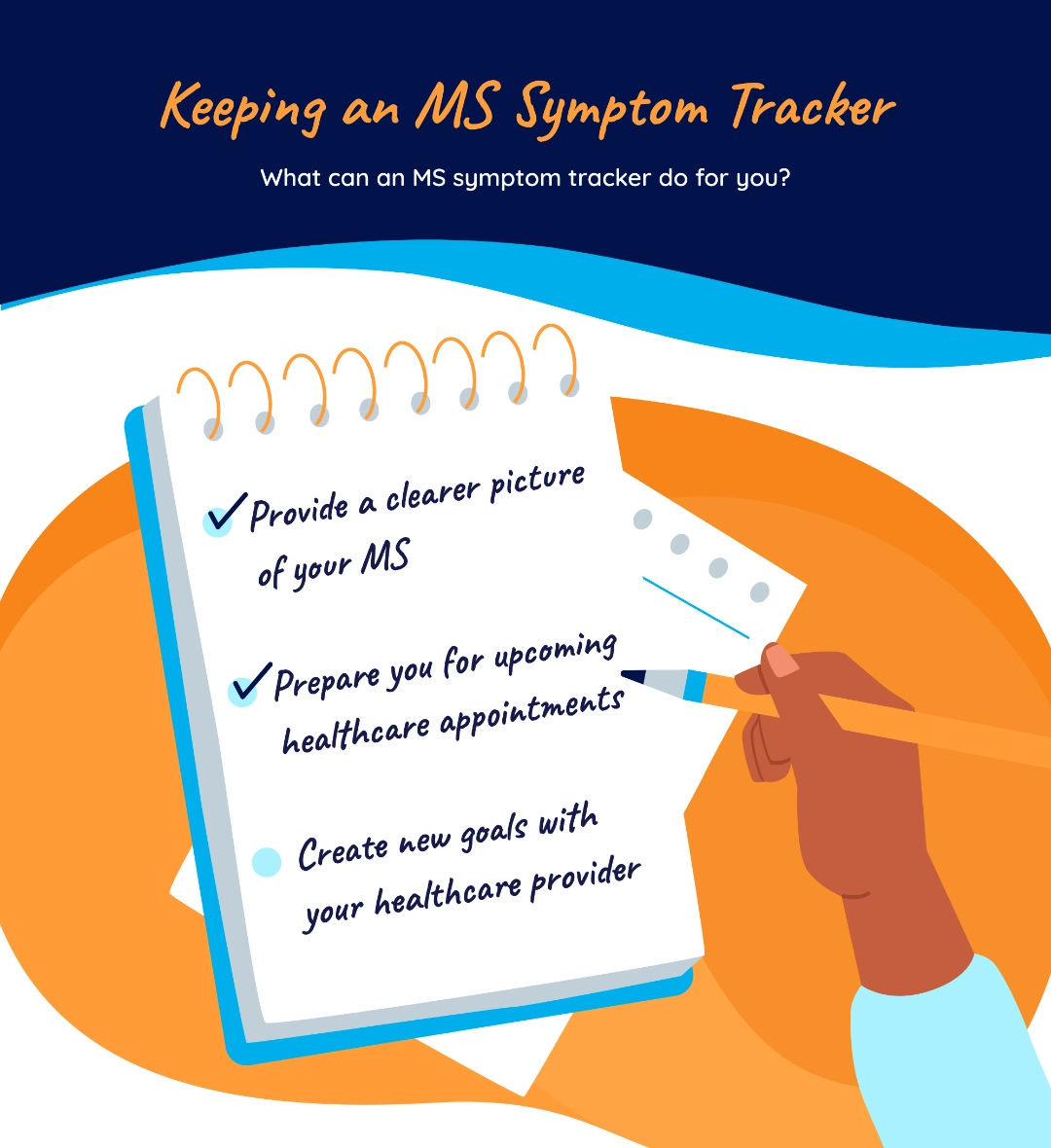- Article
- Source: Campus Sanofi
Keeping track of your MS symptoms
Having trouble keeping track of changes in your MS? Here are some suggestions for tracking changes using an MS symptom tracker.
Helping your healthcare provider get a full picture
There are many ways to keep track of your MS and how it may change over time. For example, your healthcare provider can observe relapse activity using magnetic resonance imaging (MRI) scans that show the changes to the lesions in your brain. Your healthcare provider can also look at your disability function to track your mobility using tests, like a walking evaluation, physical exam, and other types of functional testing.
But these tests are limited and may not show the full picture of your more subtle MS symptoms. They can’t show how much fatigue you feel from day to day, for example, or whether or not you have trouble focusing and completing tasks on time.
Your ability to keep track of changes in your MS over time is an important part of your care as well. It gives the healthcare provider the extra information they need to better understand your MS.
How you can keep track of your MS symptoms
When you keep track of your symptoms over set periods of time, it can be a great help in preparing for discussions with your healthcare provider before your next visit. Take some time to review your notes and write down your thoughts beforehand. You’ll be more prepared to ask and answer questions during your appointment.
This doesn’t have to be an added burden, either. It can be as simple as writing things down in a notes app on your phone or a notepad you hang from your fridge. You can also make notes as often as it feels comfortable for you, even a monthly summary is helpful.
It can be as simple as:
-
“I couldn’t find the right words, so I stopped talking in big meetings at work”
- “I was too tired to drive home from the store”
- “I was frustrated when I forgot another appointment”
- “I went from running to walking because I was exhausted after only a block”
- “I've had to extend my deadlines at work because I can't get through my tasks as quickly as I used to”
- “I lost my balance on the stairs”
Think back to this time last year—what has changed for you since then? You might want to ask yourself things like:
- “Have I stopped doing something I used to enjoy?”
- “Am I hesitant to do things because I’ll be exhausted/overwhelmed?”
- “Do I need more help with everyday tasks?”
Keeping a record can help reduce stress and better cope with worries and challenges. That’s because writing can bring structure to your thoughts to help you paint a full picture for your healthcare provider, which can help you create and define new goals.
Unsure where to start? You can stay on top of your long-term MS symptoms by recognizing and recording changes in your MS. Keep a log of any changes you may notice, and be sure to show your tracker to your healthcare provider at your next appointment. It’s an important tool to help them understand how you’re doing, and a log of your changing MS can be helpful for them to see over time.




